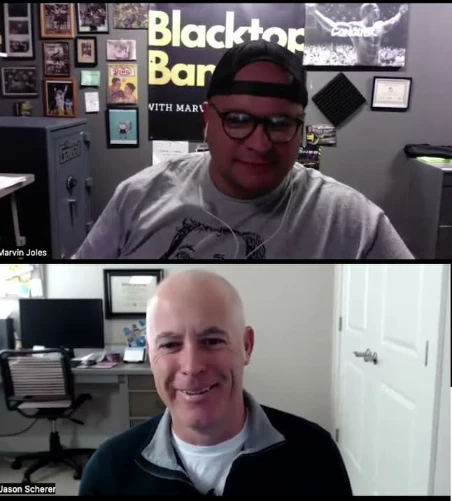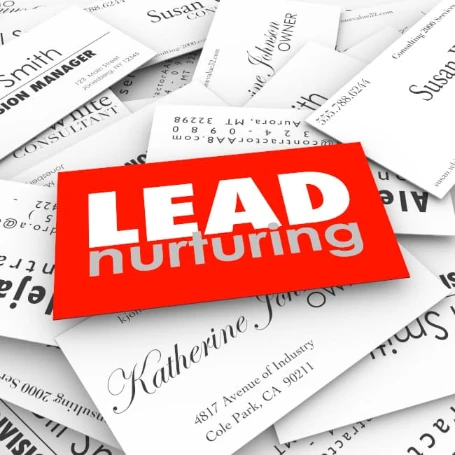
15 min
Gone are the days of using telephone directories for advertisement.
Marketing has become a lot more complicated than paying someone to include your company name on a yellow page and waiting for your phone to ring.
Now, everything is digital.
You can create your own website which can include all the information about your company that you wish to let people see, or even create a social media account to engage with your audience.
However, once you get the basics covered, you’d want to explore a marketing tool that you can use to promote your services to people who are actively searching for your service and something that can help you get results fast:
Google Ads (formerly known as Google Adwords) is a paid online advertising tool that allows your business to be at the top of the search results when they search for your targeted keywords.
This type of advertising tool is called Pay-Per-Click (PPC) advertising because, with this method, you’ll only be charged every time a person clicks on your ad. Facebook Ads and Bing Ads are other examples of PPC but for this article, we’ll focus mainly on Google Ads.
There are several benefits and advantages to using Google Ads to market your business online. But just to give you an idea, here are a few key factors that make them a great marketing tool:
It’s Fast – Compared to SEO which can take your website to the first page of the search results, Google Ads can take you to the first page at the click of a button.
It’s Highly Targeted – Google has access to tremendous amounts of user data. Not just their demographics or income levels, Google can now even identify where each person is in the buyer’s journey. And you can use this data to your advantage!
Meet People Who Are Looking For You – Depending on the keywords you use, you’ll be able to target people who are already actively looking for businesses like yours, instead of seeing a banner ad while they go about their day.
Google Ads work like an auction. You bid for a specific keyword or phrase so when people use these terms in their search query, your business will appear at the top.
However, there are also a lot of factors that can affect your results aside from the amount you’re willing to pay for every click.
Since Google makes revenue every time a user clicks an ad, it aims to show only the most relevant ad to the user.
That said, Google uses what they call “Quality Score” to determine your cost per click (CPC) and multiplied by your highest bid, determine your ad rank against other bidders.
Quality control can be affected by multiple factors including:
This is the first thing you’ll have to decide before starting your PPC Campaign. Of course, if you’re just starting out, you can have a small budget. But if you wish to scale, you’ll have to be able to invest money to earn money.
Ideally, asphalt paving contractors should have at least $1,000 a month for their ad spend budget.
The higher your budget is, the higher you can bid for more highly-targeted keywords, and the more clicks you can pay for.
In the end, it’s all about the return on investment. Even if you only get a few clicks and one asphalt paving project out of the $1,000 you spend, if it gives you a $5,000 in profit, you’re in a very good spot.
Over time, you should have a better grasp of your sales number on Google Ads and have an idea about the ideal budget that can bring significant results. You should consider your closing percentage, your average cost per click, conversion to lead percentage, as well as the average profit per project.
The success of your campaign heavily relies on choosing the right keywords. That said, it’s also one of the most technical aspects that can take a lot of practice to master.
To know which keywords to bid for, you’ll have to conduct extensive keyword research. There are a few tools you can use to accomplish this such as:
Once you’ve found several keywords you’d want to bid for, it’s important to group them accordingly with similar keywords.
Now that you have a few keywords you can choose from, you can group similar phrases together, and that will serve as your Ad Groups.
For example, you can have an ad group that consists of general asphalt paving terms like “asphalt company”, “asphalt contractors” or “asphalt pavers”.
Next, you can have an ad group that consists of general asphalt paving terms plus a geo-modifier, like “asphalt company Minneapolis” or “asphalt contractors “Chicago”.
You can also create ad groups based on the service that you are planning to offer like “asphalt paving”, “asphalt sealcoating”, or “Asphalt patching”.
There are several ways you can approach this, and mix and matching can help you identify a great fit based on your current goals.
In Google Ads, there are four main types of keywords you can use in your ad groups.
Broad Match
This is the bare minimum keyword you can use, like “asphalt paving company”. However, this type of keyword can be costly and highly ineffective. You’ll be better off using the three other options.
Broad Match Modifier – +Asphalt+Contractors+Minnesota
For broad match modifier ads, your ad will show up for any search queries that include all the keywords with a plus sign on it. They can contain a synonym or close variants of your keywords and can be in any order.
Phrase Match – “Asphalt Contractors Minnesota”
For phrase match, the ad will show up in any queries that contain the keywords in order but can include any other words before or after the term.
Exact Match – [Asphalt Contractors Minnesota]
For an exact match type of ad, the query must be exactly the same as the keyword or extremely similar variations, before your ad can be shown.
To cover all of your bases, you must use different types of search phrases in each ad group. For example, for one search phrase in an ad group, you can have:
+Asphalt+Companies+Minnesota
“Asphalt Companies Minnesota”
[Asphalt Companies Minnesota]
Or
+Asphalt+Contractors+Minnesota
“Asphalt Contractors Minnesota”
[Asphalt Contractors Minnesota]
While you should exert effort identifying your main keywords, you should also conduct research and identify keywords you don’t want your ads showing for.
This ensures that your ads will not be shown (and will not be clicked and charged to you) when people use certain keywords in their search.
For example, as an asphalt paving company, you wouldn’t want your ads to be shown for these irrelevant terms:
When people use these terms in addition to your keywords, it means they are not looking to avail of your service, and you wouldn’t want them clicking on your ad designed to target new customers.
Another term you can add as a negative keyword is your competitor’s business name. You wouldn’t want to show your ad to someone who already knows who to work with, and just looking for their contact information or website.
BUT, some more experienced marketers actively try to bid for their competitors’ names as their keywords, in the hopes of stealing their leads. This is an aggressive approach but you might want to leave this to the pros for now.
Now that you’ve identified your keywords and your budget, it’s time to set up your Google Ads Campaign. Let’s take a look at the steps you need to take, and some general tips on how to do so:
Campaign Goal: Google Ads will ask for your campaign goal. Select “Leads” as the goal.
Campaign Type: Google will then ask for the campaign type. There are several types to choose from, but for this purpose and if you’re just starting out, select “Search”. This will allow you to show ads on Google’s main search results.
Title Your Campaign: You can decide whatever you want to call your campaign, but we suggest name it according to what your campaign is about. For example, if it’s all about asphalt paving for residential customers, name it “Asphalt Residential”.
Networks: This is where you’ll decide where your ads will be shown. Select “Search Network” to ensure your ads will only be shown when people search for terms relevant to your keywords. At the same time, make sure “Display Network” and “Include Google Search Partners” are unchecked since they are not as effective and can simply eat up your budget.
Locations: For an asphalt contractor servicing a certain area, this will be very important. This is where you can put your service area, be it a radius from a city, certain cities, or zip codes, and more. If you wish to exclude certain cities, you can do it, too.
Also, keep in mind that Google automatically selects an option that says “Target people in, or who show interest in, your target locations”. For your type of business, this wouldn’t be ideal since your ad will be shown to people in other states who search for your keywords – and they are most likely not going to convert.
That said, you should uncheck it, and select “People in your targeted locations”.
Budget: Since we’ve already identified your monthly ad spend budget, just divide it into 30 days to know how much you’re willing to spend each day.
Bidding: For bidding, you can select “manual bidding” to have maximum control over the campaign or you can choose “maximize conversions or target ROA”. We suggest using manual bidding so you can make your own choices based on the presented information.
Setting up your text ad can require creativity and analytical thinking at the same time. There are many strategies you can try to see what works for you, but in the end, it’s all about testing every combination and making small changes along the way. Let’s take a quick look at the basic anatomy of your text ad:
Headlines: Your ad headlines are what will capture your audience’s attention. By using terms relevant or similar to their search query (your keywords), you can get better results. But that might not always be the best option.
Your text ad consists of up to three headlines where you can enter up to 30 characters each. You can use the first headline to state your main keyword, and the second headline to include trust components, numbers, or a call to action to get more clicks.
The third headline is fairly new and is displayed very infrequently so you can skip this for now, or just use it to support your headline 2.
Display URL: Display URL shows your website address. This section is in green, and it tells users where exactly they will land once they click your ad. Ideally, you’d want to have a custom, clear URL which also uses some of your keywords.
Description: This is where you can highlight the details about your service. Ideally, you should include a relevant call to action like “Get a FREE estimate” or “Get an instant quote”.
Ad extensions can greatly improve the chances of your ad to boost your clickthrough rate and succeed. There are several extensions you can choose from:
Location Extensions: This is the most important extension you can use as an asphalt contractor servicing a certain area.
This extension allows you to hook up your Google My Business page to your ad accounts. Not only will you be able to display your location and contact information, but it will also be shown in the 3 Pack of organic maps and above the number 1 ranked maps business.
This will show you your review starts which can be a strong social proof to gain credibility and trust.
Call Extensions: Call extensions are the easiest and most effective way to add phone numbers into your ads. This gives your prospect a way to call you directly (when using a mobile device) by simply tapping the call button.
Callout Extensions: Callout extensions gives you another shot to emphasize on the benefits or advantages of working with your asphalt company. You can add callouts at an account, campaign, or ad group level. Use this to display relevant information that can compel readers to click like using social proof, benefit-driven statements, or even let people know about different types of service you offer such as seal coating, pothole repairs, residential or commercial.
Sitelink Extensions: Sitelinks extension gives you the chance to include links to different parts of your website so they can go directly to the page that is relevant to their needs. You can use this to include a link for each of your service type. Alternatively, you can use it to showcase other pages like your About Page, Testimonials, and more.
Without tracking your conversion rates, you won’t know if your ad campaigns are working or not, and if there are any changes you need to make. By tracking your conversions, you can measure your campaign’s ROI and help you decide your next steps.
There are 3 types of conversion tracking you can set up:
Contact Form Submissions: Add a conversion code on the thank you page which will show up after they submit.
Calls from Landing Page: This is when people click on your ads and goes to your website, then calls the number on your landing page. You can use Google’s call tracking numbers to help you set this up.
Ad Extension Calls: This is when people directly tap the call button on your ad, instead of going to your website first.
Regardless of how good your ads are and how many clicks you get, if they don’t convert once they reach your landing page, then it’s all for nothing.
Make sure that when people click your ad, they will be taken to a page that shows relevant information and a clear call to action, without any other distractions.
You can try different ways to format your landing page, but here are a couple of things you should always have on your landing page:
A clear, concise, and compelling headline
Your main keywords (can be included in the headline)
Benefit-driven statements
Relevant images
A short contact form (make it as short as possible)
The areas you service
Testimonials
Trust symbols like certifications and awards.
You want your landing page to be as straightforward as possible, without causing any distractions (like buttons that lead to other pages). You’d want them to call or submit their contact information and not browse around your website.
Additionally, make your site mobile-friendly to make sure every visitor, regardless of device, can have a good look at your landing page.
Congratulations! You’ve just completely set up your first Google Ad.
However, the real challenge is not yet over. You need to consistently monitor how your ads are performing and make changes along the way. You will certainly go through a trial and error phase until you get the higher conversion rates at the lowest cost possible.
But once you get it right, you can do it again and again for as long as it works, and you can even scale up by increasing your budget and reaching more users.
And from there, you can step back and see your business grow more than you could have accomplished using other traditional marketing tools.
Google Ads is definitely an effective tool to reach your target audience and turn them into paying customers. When done right, this can be your ticket to success. However, there’s a steep learning curve and you will have to endure the trial and error phase before you get the hang of it.
Alternatively, you can also get help from a PPC Professional who knows exactly what to do to minimize your ad spending while maximizing your conversions. This will not only save you from the headache of running your own ads, it can lead to better results, too!
Then, you can focus on what you do best – providing great asphalt paving services to your customers.
Get in touch today to get help with your first or next Google Ad Campaign!

35 min

6 min

6 min